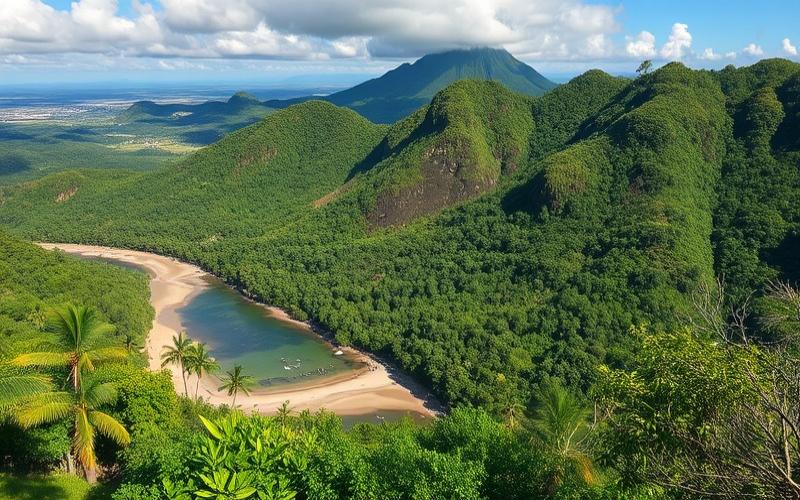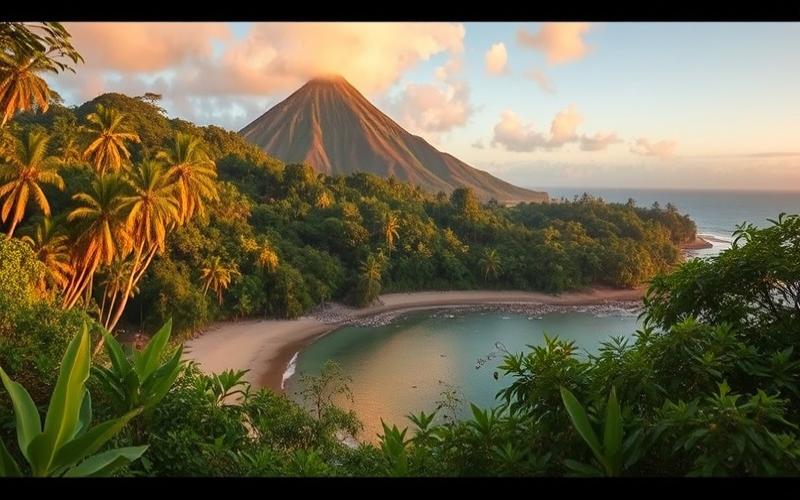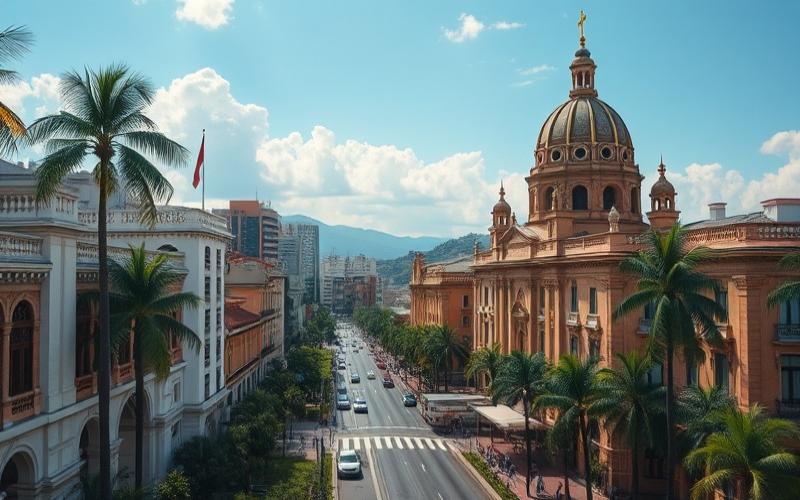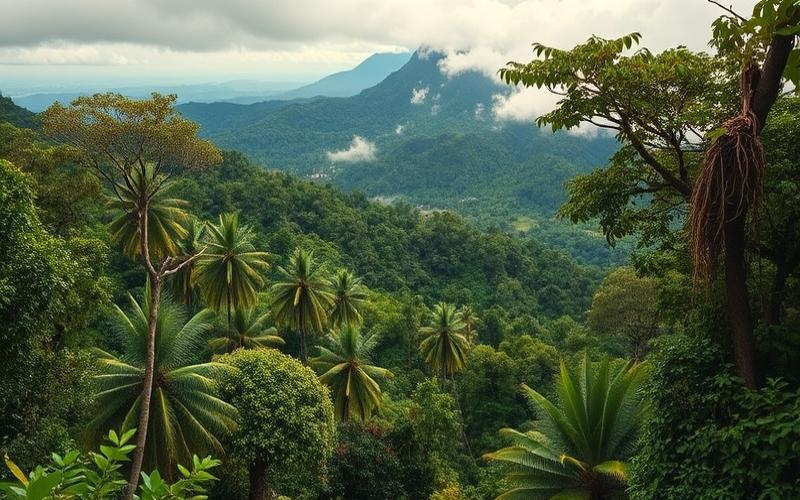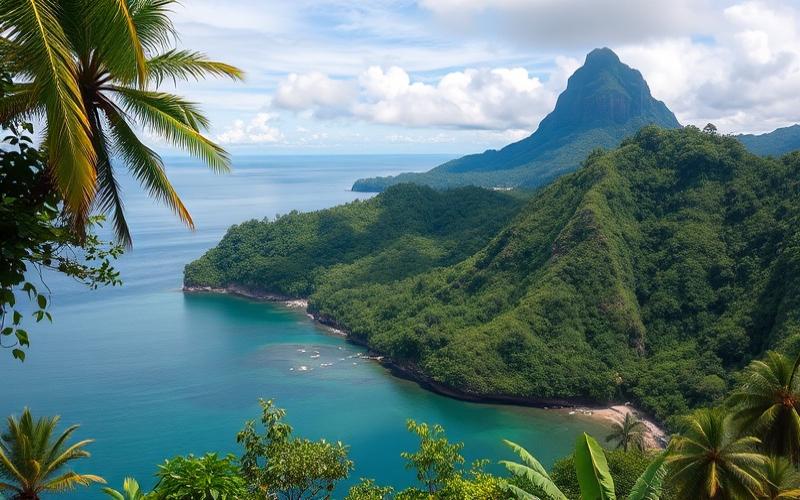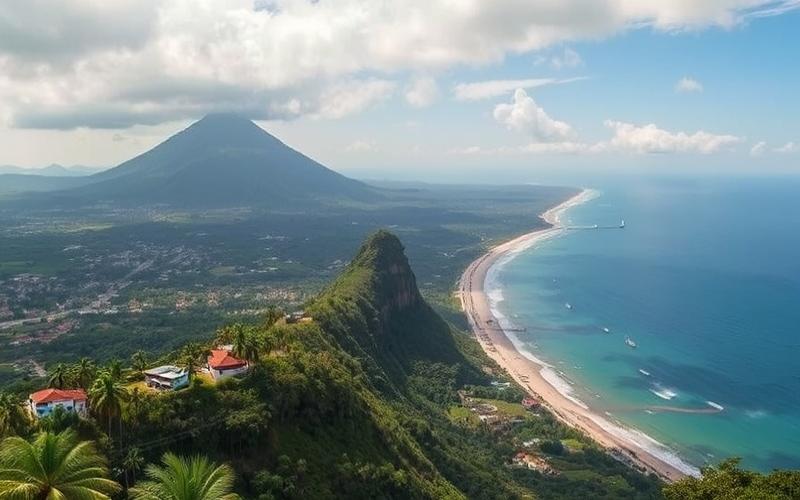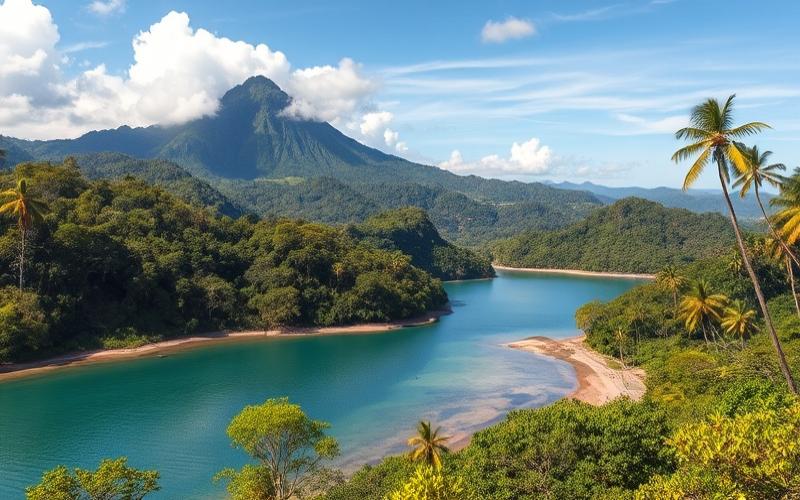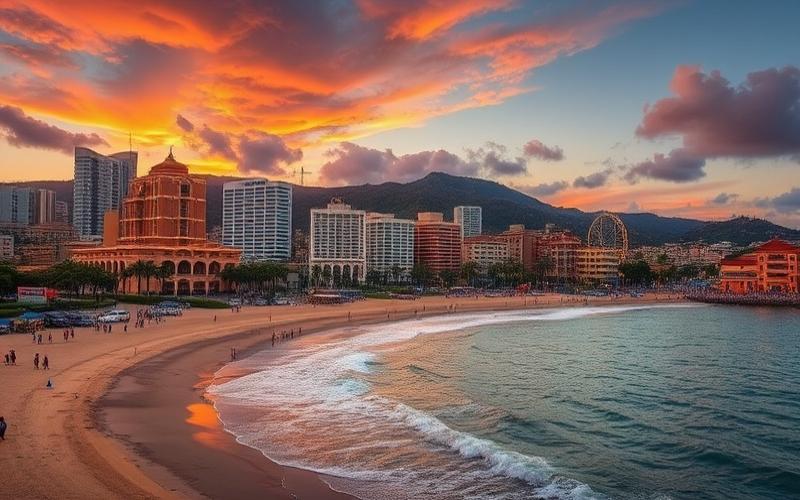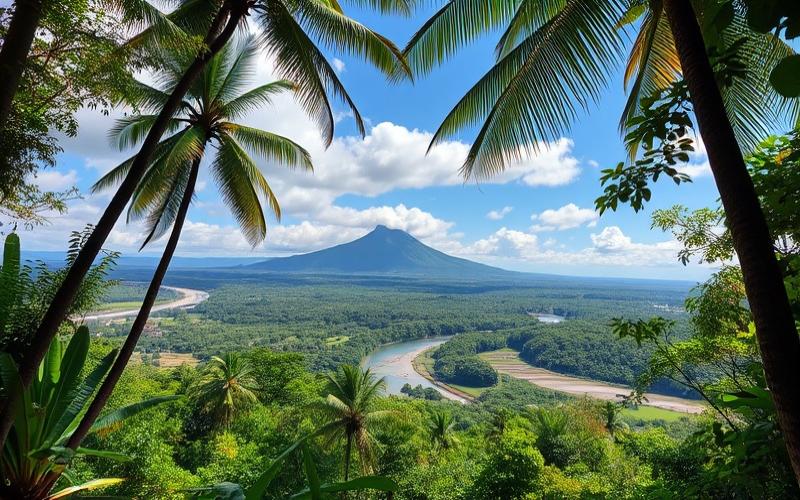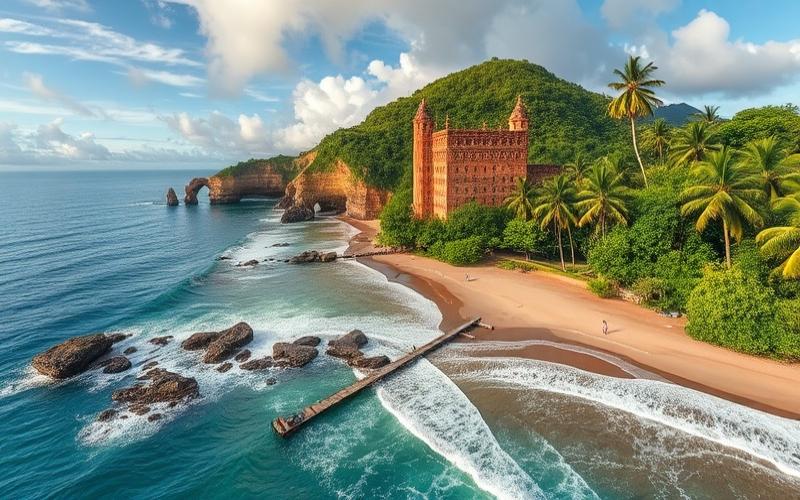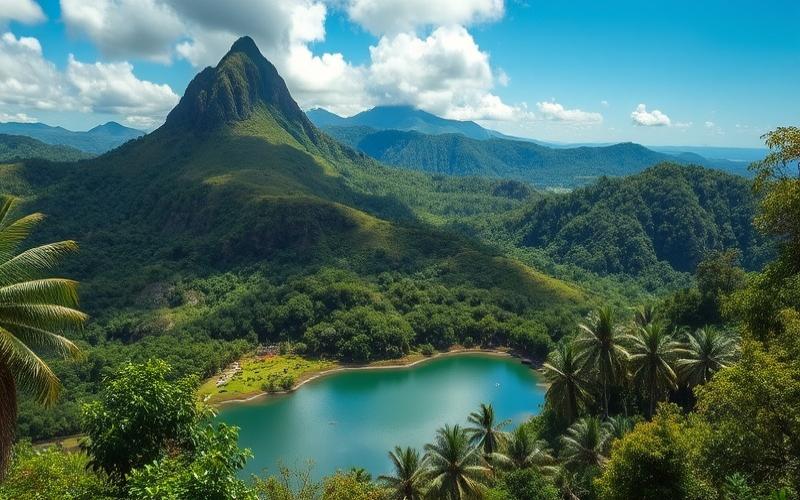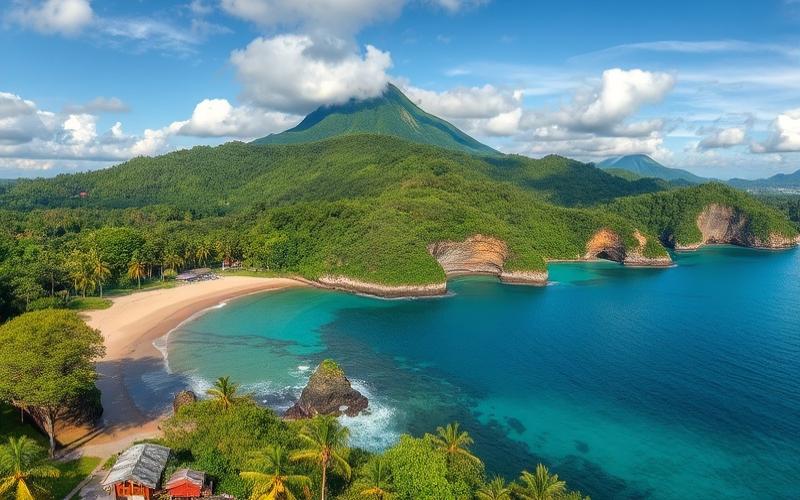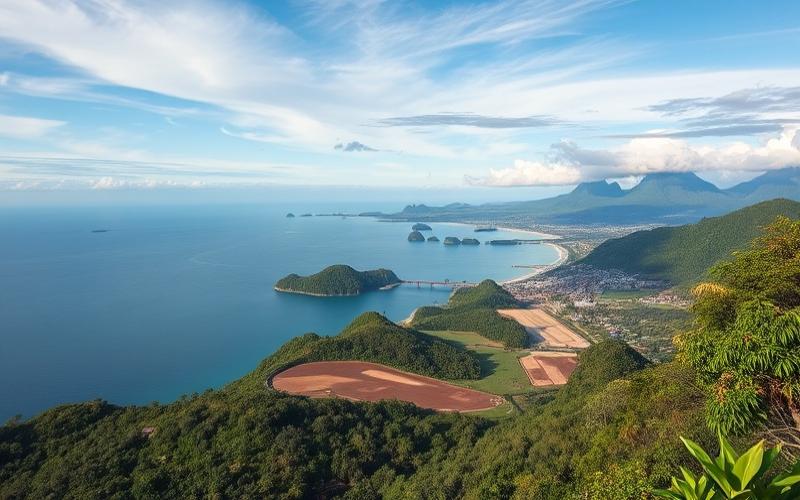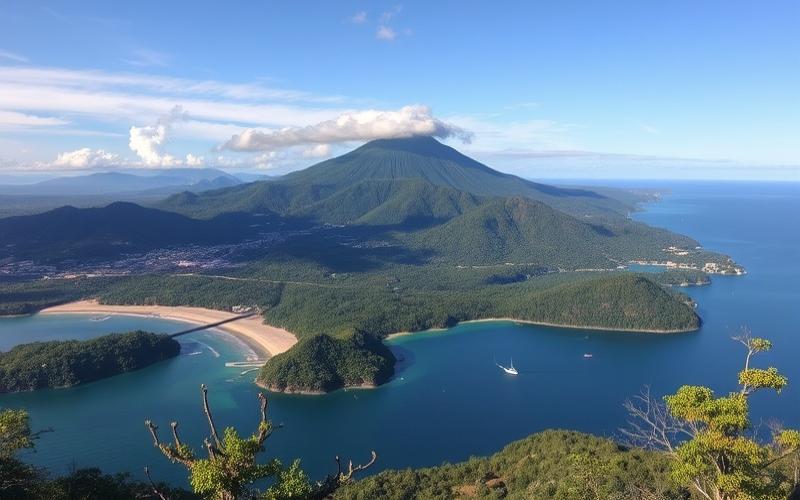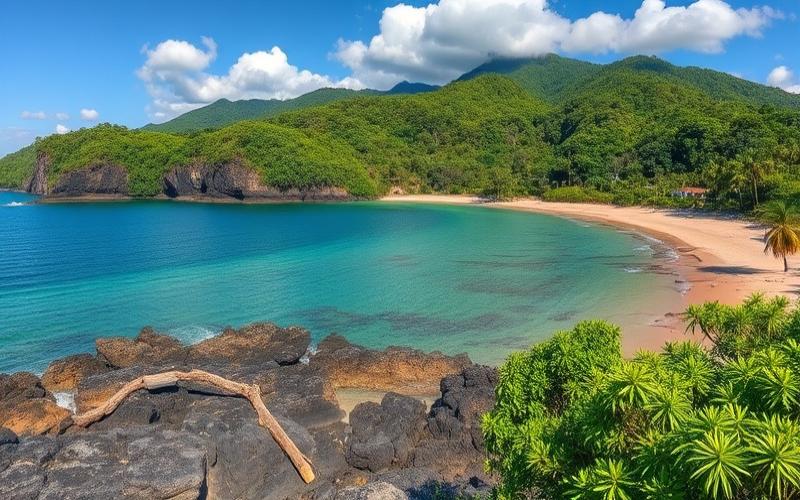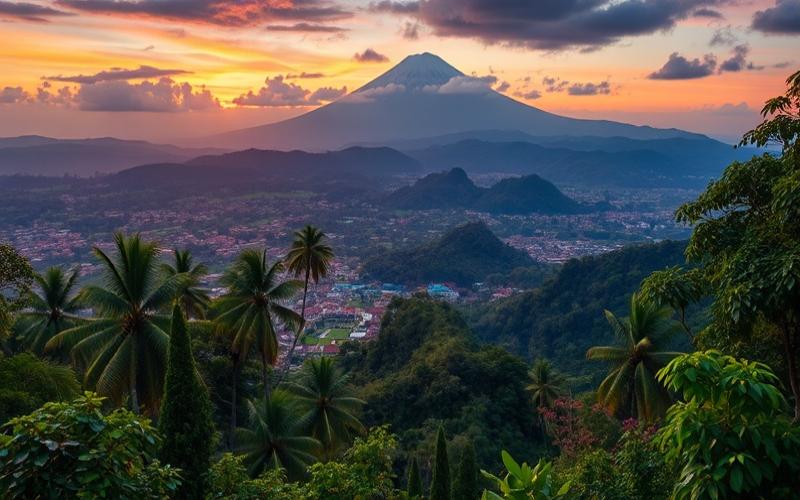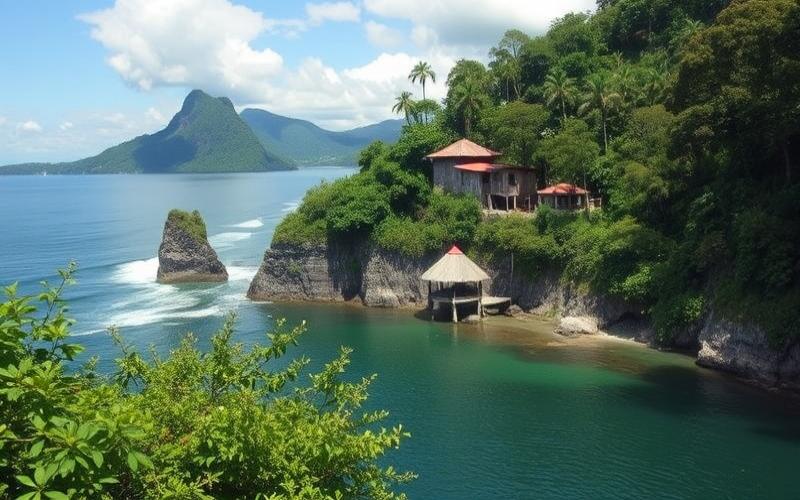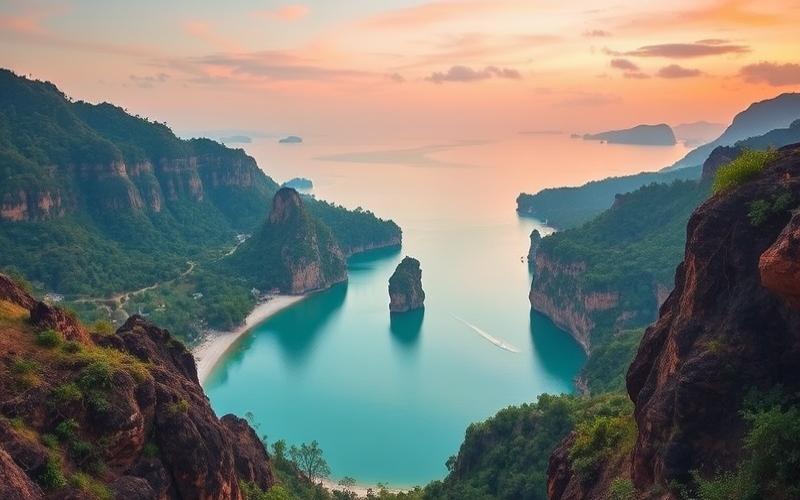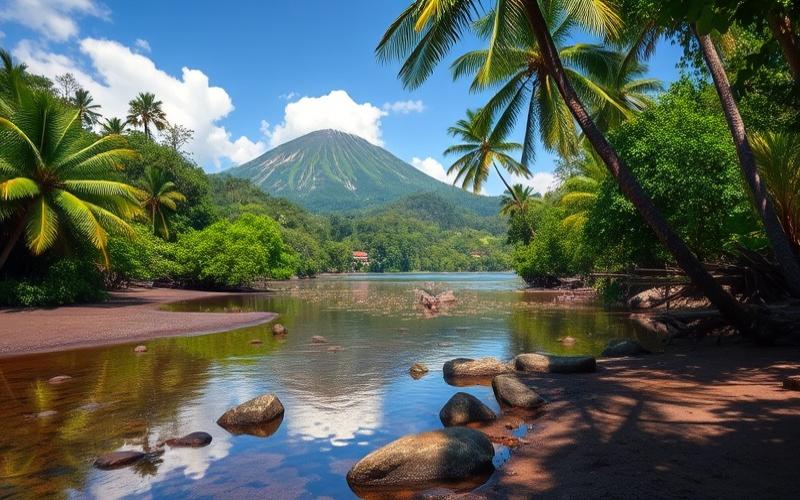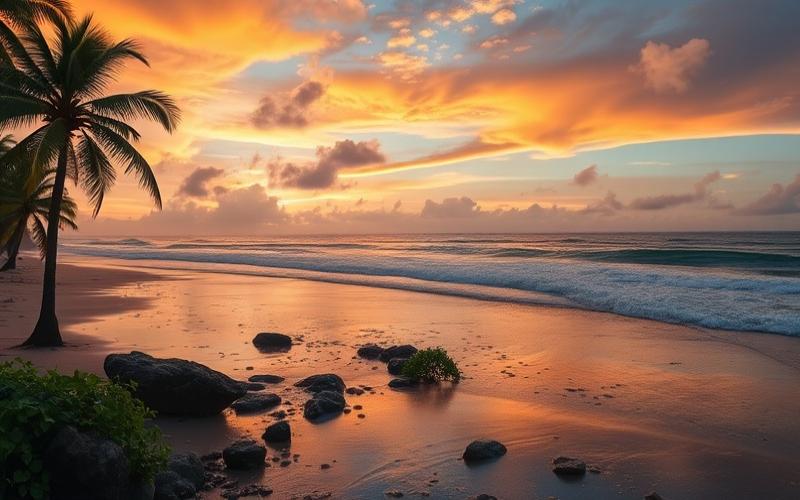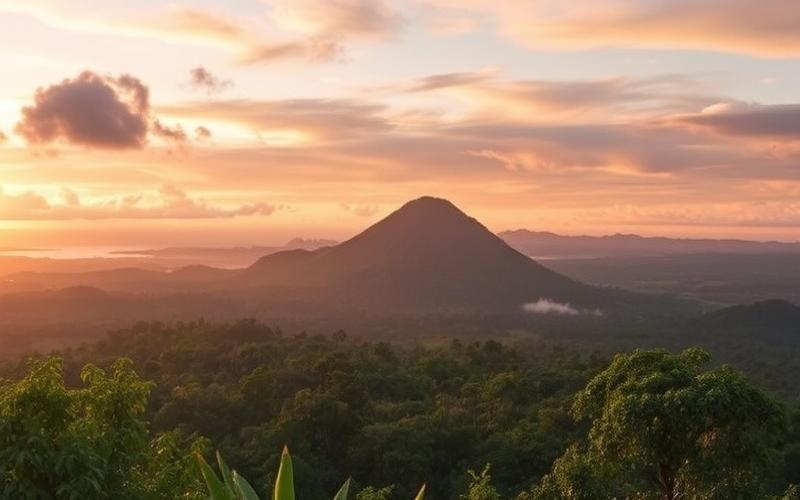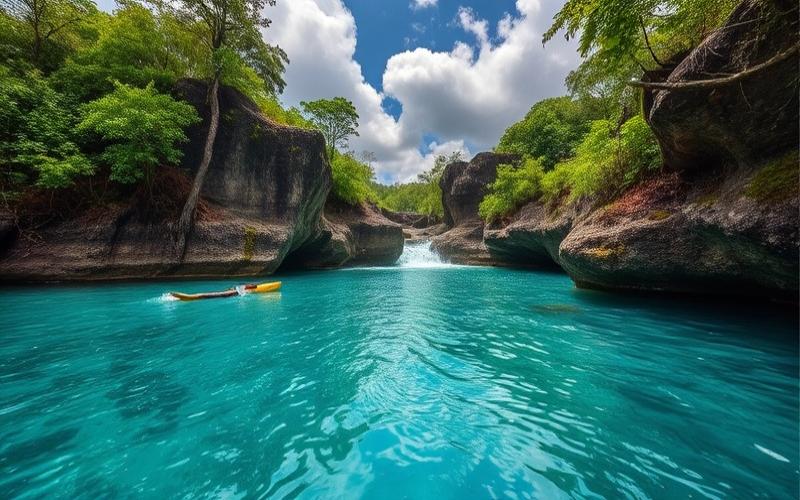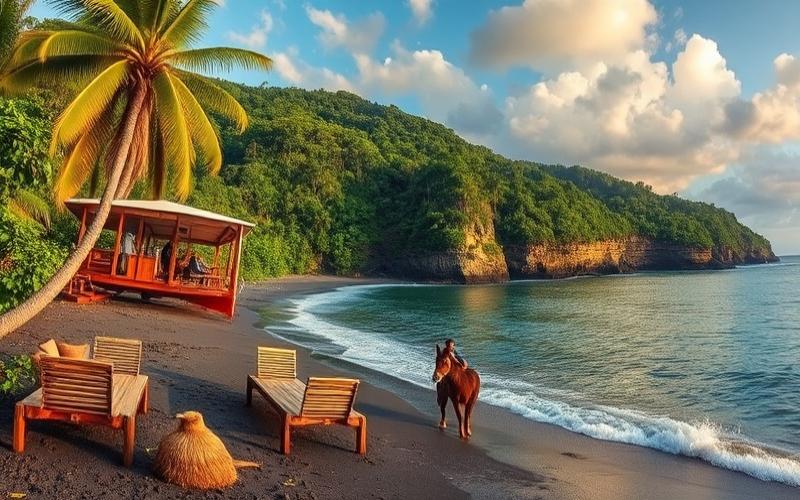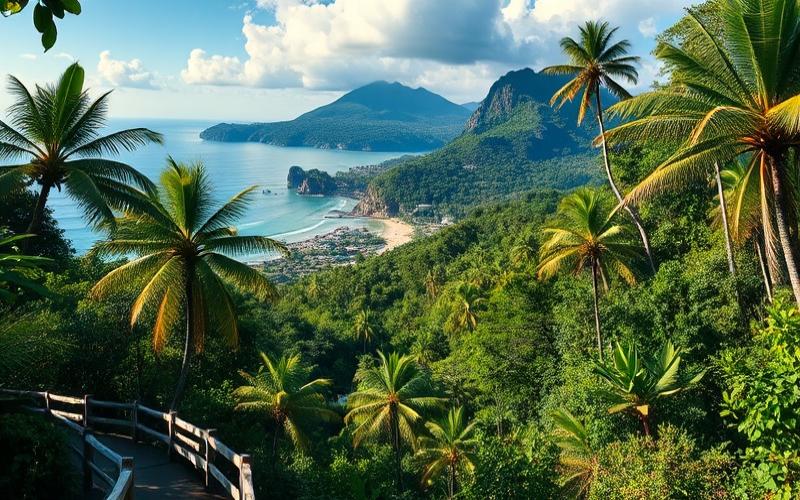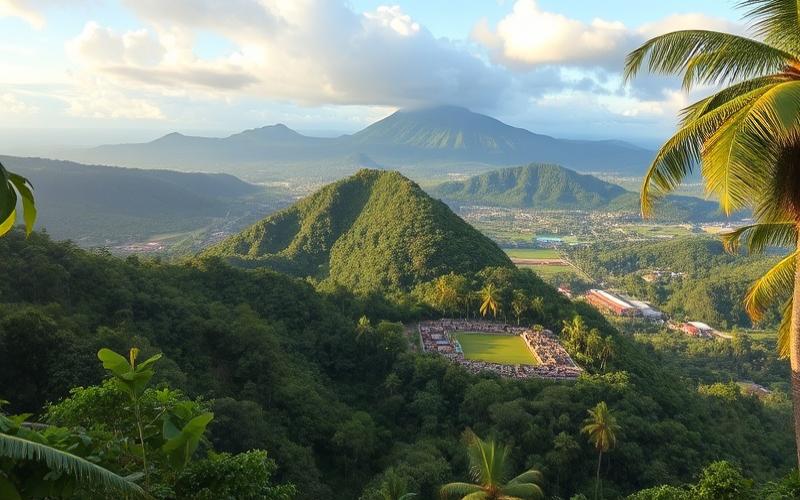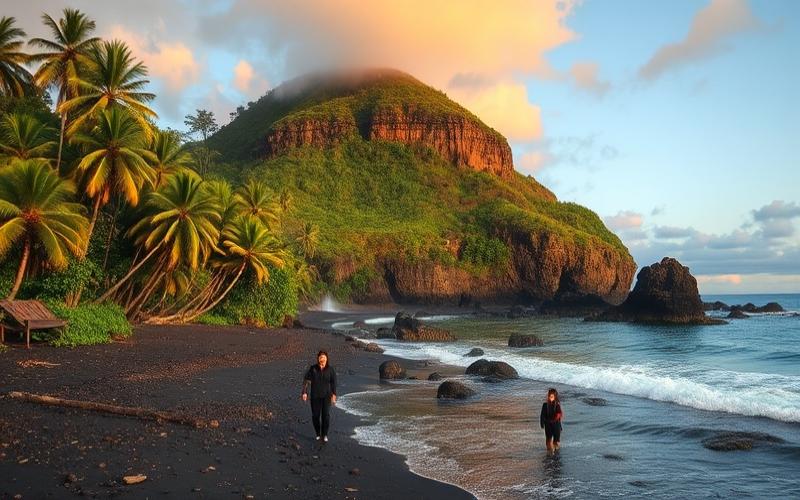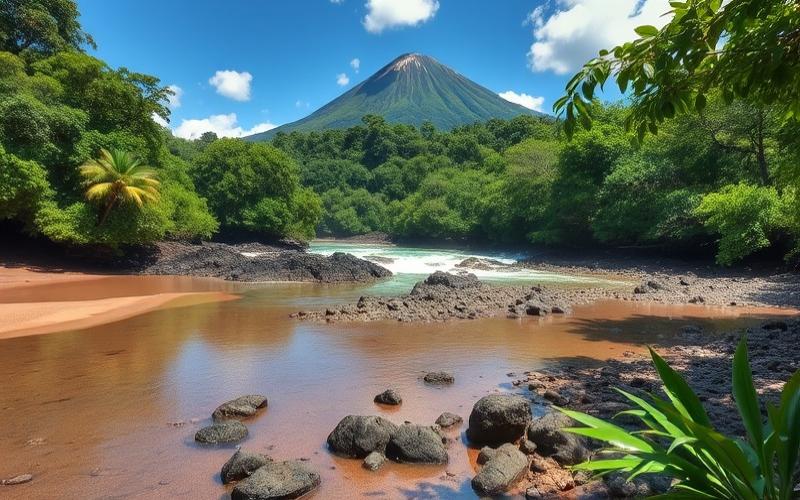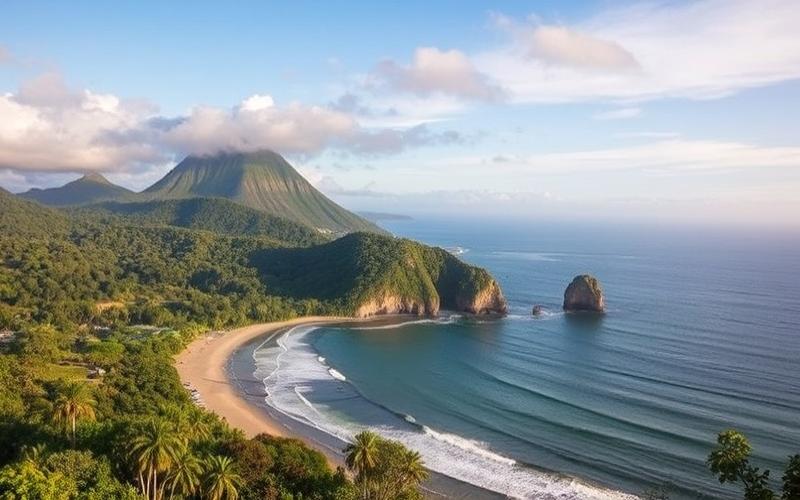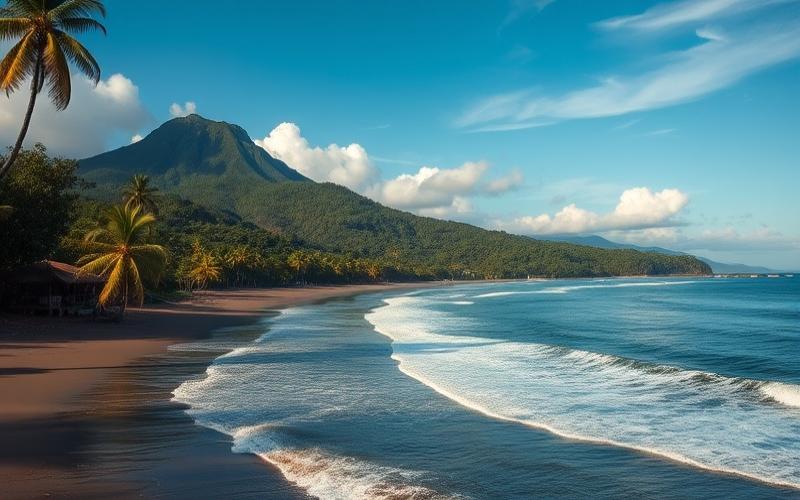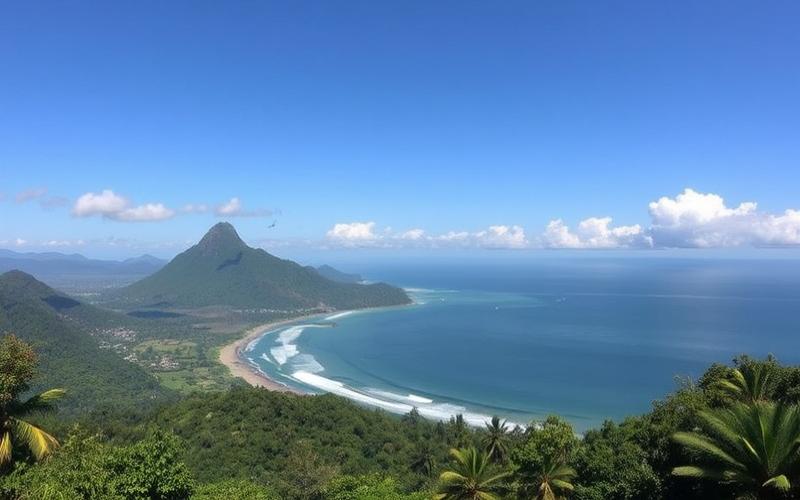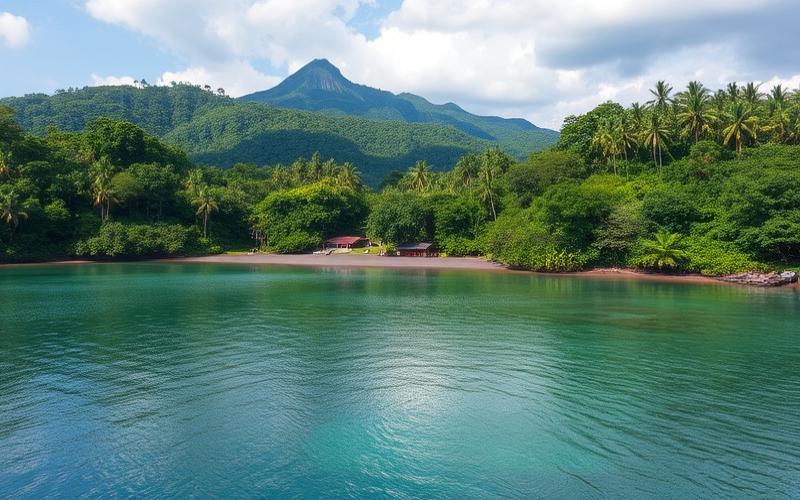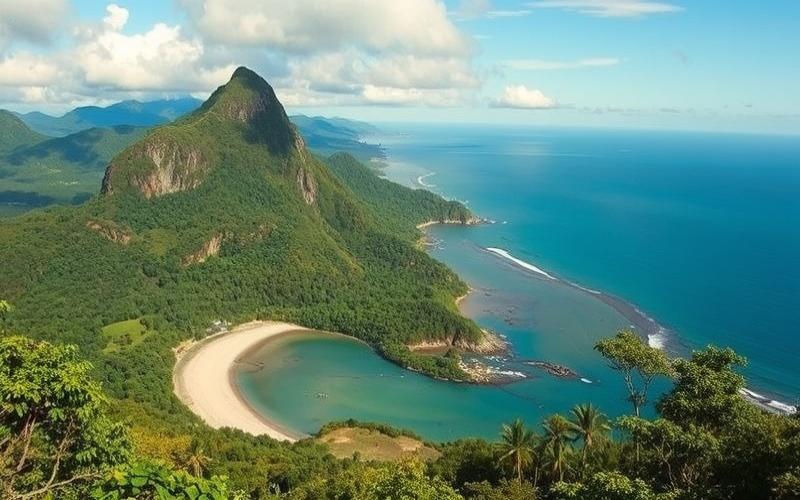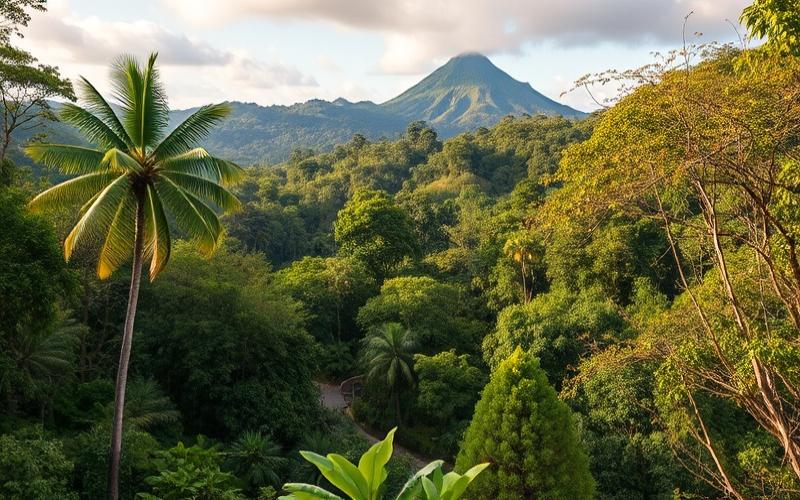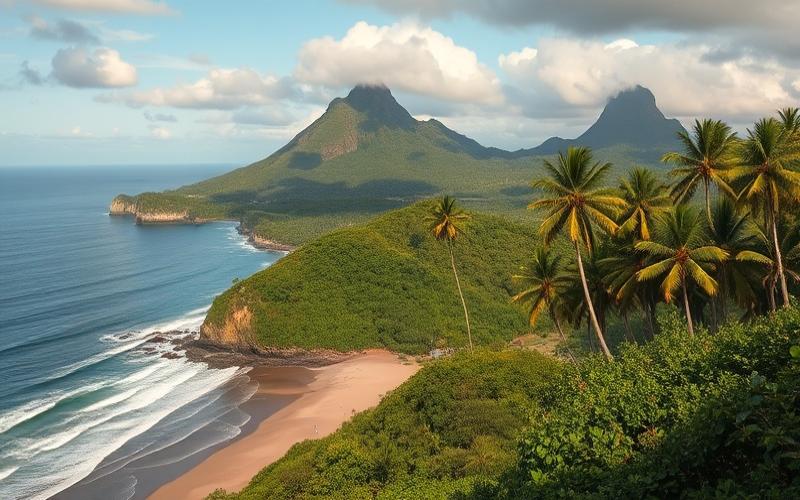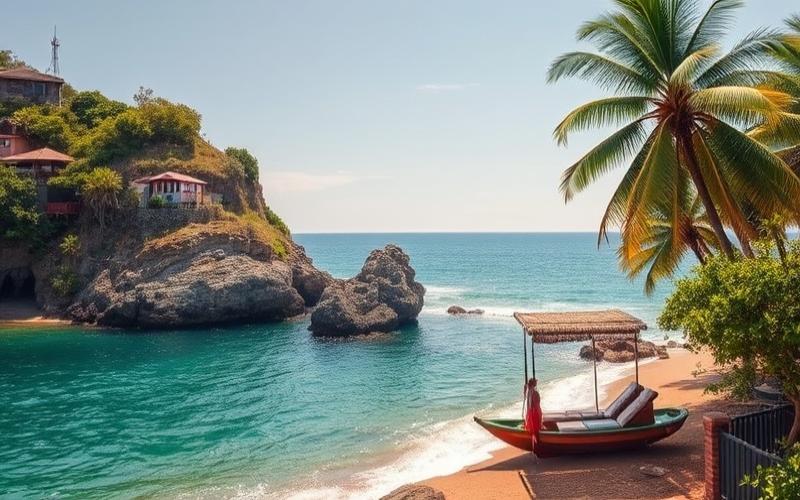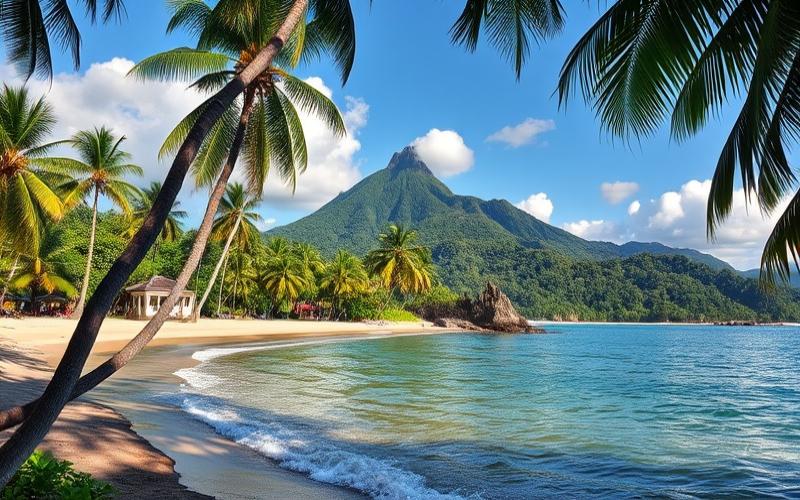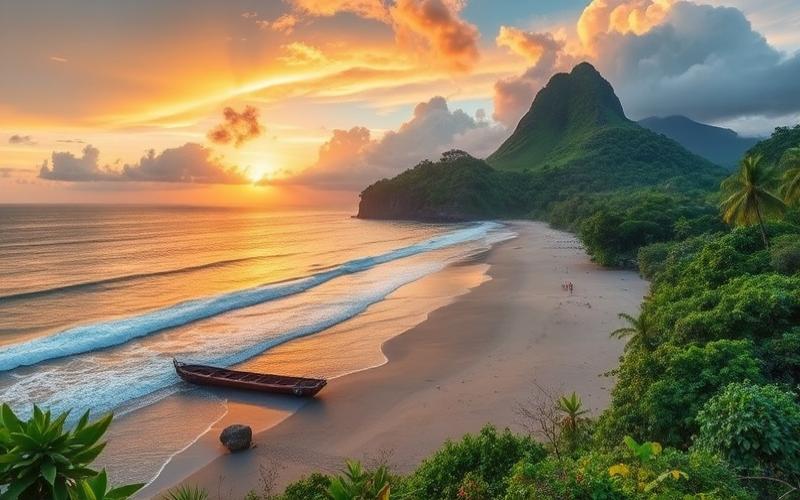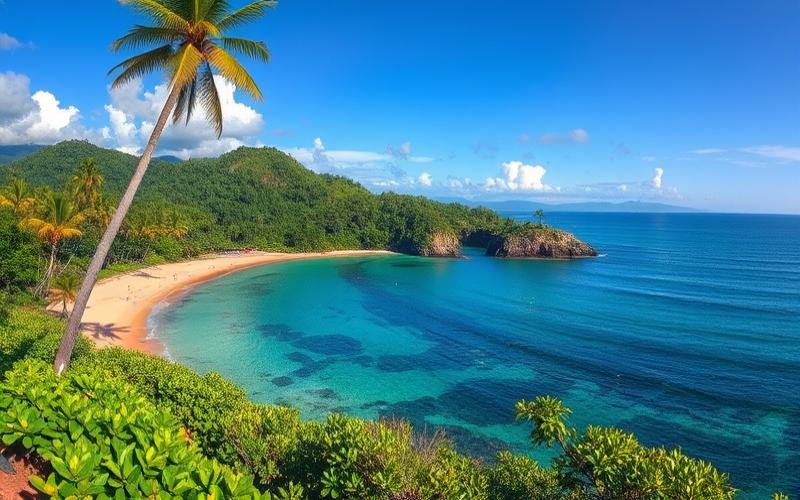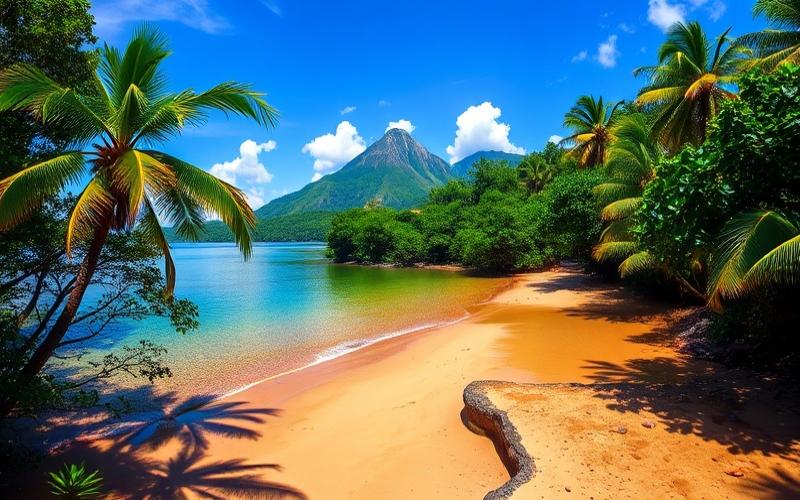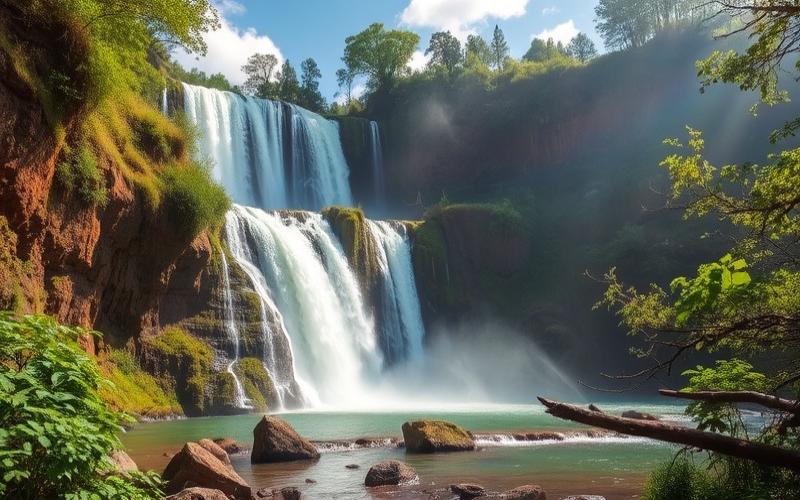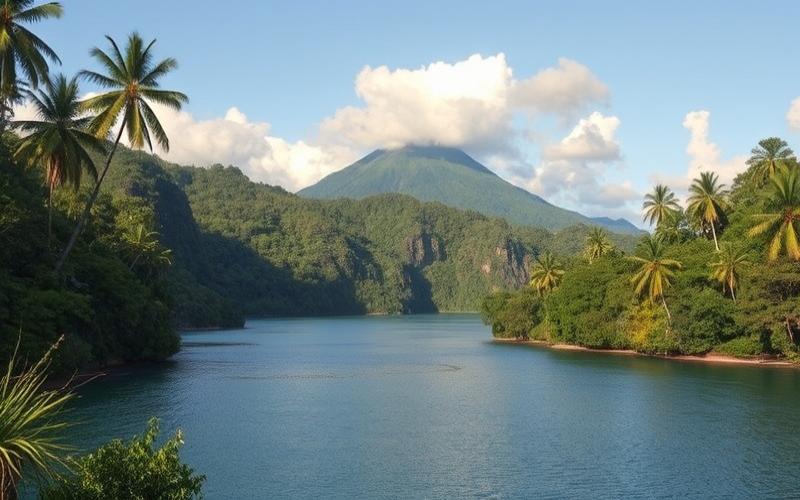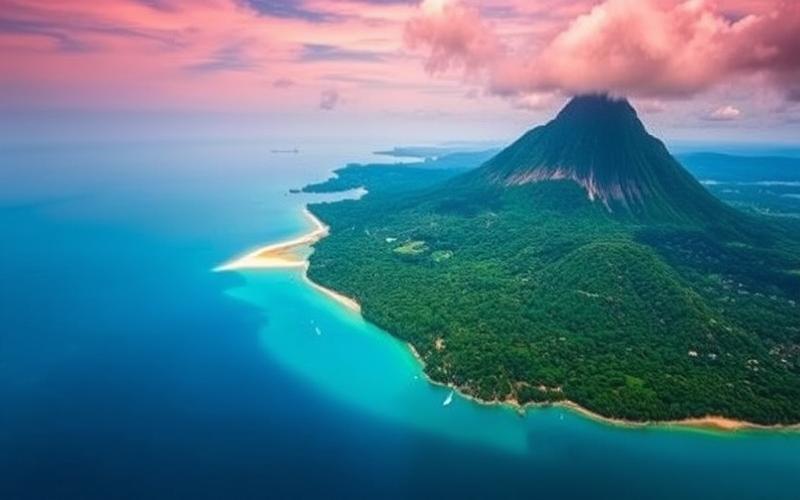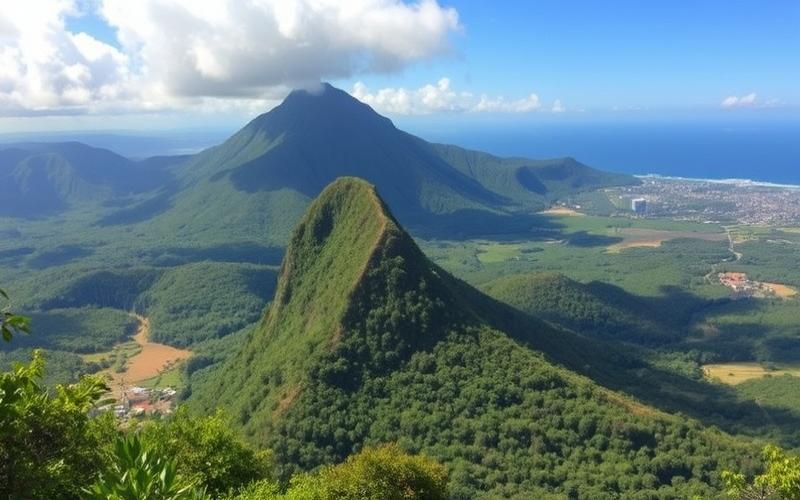
 Published on and written by Cyril Jarnias
Published on and written by Cyril Jarnias
French Expatriation in Costa Rica: A Real Estate Adventure
Through lush landscapes and exceptional biodiversity, Costa Rica attracts not only tourists but also many French expatriates who decide to settle there. Among them, some have made the bold choice to become property owners in this small Central American paradise.
From Challenges to Success: The Expat Journey
This article takes you on an intimate exploration of these French citizens’ experiences, recounting their challenges, successes, and integration within the local community.
Good to Know:
The national motto “Pura Vida” represents much more than just an expression – it’s a complete way of living in harmony with nature and the people.
Between Sea and Mountain: A New Life
Between the Pacific coast beaches and the lush inland mountains, discover how they reinvented their daily lives in this country where the national motto, “Pura Vida,” symbolizes an art of living in harmony with nature and the people.
French Expatriates in Costa Rica: Journeys and Challenges
The expatriation journeys of French citizens settled in Costa Rica are as varied as the individuals themselves. Several testimonials illustrate the diversity of their motivations, administrative procedures undertaken, obstacles encountered, and their adaptation to local life.
Reasons for Relocation
- Search for a better quality of life: many mention the pleasant climate, preserved nature, and a certain gentleness of living.
- Desire to start a business or need for professional freedom: for example, Patricia Richer explains she left France due to the social and economic context deemed restrictive for entrepreneurs. In Costa Rica, she was able to open a French restaurant despite the initial uncertainty.
- Attraction to adventure or radical change: some digital nomads emphasize they wanted to break away from their French routine to discover a simpler lifestyle closer to nature.
Essential Administrative Procedures
- Obtain a visa (temporary resident, investor, or retiree depending on the situation).
- Prepare a complete file with the Costa Rican immigration service (official translations required).
- Open a local bank account (often conditional on obtaining resident status).
- Subscribe to appropriate health insurance since the local public system reimburses little; some expatriates mention the high cost of good private coverage here.
| Procedure | Main Difficulty |
| Visa / Residence | Administrative slowness; translation requirements |
| Health Insurance | High cost; low public reimbursement |
| Bank Account | Sometimes lengthy procedure |
Major Challenges Encountered
Bureaucracy
Administrative slowness is often cited as a major source of frustration. Delays can be long, and one must arm themselves with patience to obtain all necessary documents.
Language Barrier
Many arrive without speaking Spanish fluently. But according to several recent testimonials:
“Even if you don’t speak Spanish at all… they’ll still take the time… They take the time… You can make yourself understood very well with gestures…”
This benevolence greatly facilitates initial integration but doesn’t eliminate all daily language-related difficulties.
Culture Shock
Adapting to the slower pace (“tranquillo”), different schedules (delayed meals), or certain social norms can be surprising. One often has to let go of certain automatic behaviors brought from France.
Anecdotes About Daily Adaptation
A couple recounts how they started their personal projects (“we’re building the pool… I manage with my Spanish words”), which not only allows learning but also builds local connections through direct exchanges with Costa Rican artisans.
Patricia Richer notes that initially “it’s a courageous form” perceived positively by Costa Ricans: they respect this approach of going into the unknown to realize personal dreams—this quickly creates a form of mutual admiration between French expatriates and locals.
Digital nomads also highlight that traveling light greatly simplifies the transition (“my life already fit in 2 suitcases”).
Cultural Integration and Adopted Strategies
- Participate in local community activities
- Gradually learn Spanish “on the go”
- Accept – even appreciate – that everything is less structured than in France
- Develop patience in the face of unexpected events
Some emphasize the crucial importance of preliminary scouting before permanent settlement: coming for a few weeks/months often allows “to break the fantasy that everything is perfect,” better prepare one’s concrete project, and then settle permanently if feeling mentally ready for local realities.
Positive Aspects Motivating Their Permanent Settlement
Exceptional quality of natural surroundings
Mild climate year-round
Welcoming & benevolent local population
Economic opportunities in certain sectors (restaurants, eco-tourism)
Lower cost compared to some French regions
Real possibility of accessible real estate purchase under simple conditions
Many finally express their strong attachment to the “pura vida” lifestyle—local philosophy based on simplicity, daily optimism, and mutual respect—which profoundly transforms their relationship with work as well as their private sphere. This unique feeling explains why many of them ultimately decide not only to stay, but also to invest in property to “permanently anchor this new chosen existence.”
Good to Know:
Sophie, a French expatriate living in Costa Rica for five years, discusses her decision to live there attracted by the tropical climate and expanding professional opportunities. Like many, she found the administrative process complex, particularly for obtaining permanent residency. She recommends preparing for local bureaucracy, emphasizing the importance of patience in the face of unpredictable delays. Cultural integration was a challenge, marked by the language shock with Spanish, but she quickly progressed through intensive courses and the warm welcome from locals. Sophie shares that learning local traditions and customs was enriching, easing the feeling of distance. For Mathieu, another expatriate, the more affordable cost of living and access to vast green spaces are significant advantages that justify his choice to purchase real estate in San José. They both stress the importance of researching the local market to avoid pitfalls and confirm that this expatriation has offered them a quality of life superior to European standards.
Opinions and Testimonials: Living in Costa Rica
Testimonials from French Citizens Who Became Property Owners in Costa Rica
Many French citizens have chosen Costa Rica to settle permanently and purchase real estate. Their stories shed light on the motivations, challenges, benefits, and pitfalls of this adventure.
Motivations for Expatriation
- Search for a more natural and peaceful living environment, far from French administrative or economic constraints.
- Desire to start a business with less complexity: for example, Patricia Richer explains she left France because she found the situation too restrictive for entrepreneurship.
- Attraction to a society perceived as more open or respectful of the expatriation choice.
- Desire to live in an environment where nature predominates (beaches, tropical forests).
Challenges Encountered During Real Estate Purchase
- Sometimes complex procedures due to legislative differences: frequent need to be accompanied by a competent local lawyer to avoid scams.
- Risk of real estate scams (fake land titles, unscrupulous intermediaries).
- Necessity of an on-site visit before any purchase: several testimonials strongly advise this key step before any final decision.
| Challenge Encountered | Solution / Advice |
|---|---|
| Language Barrier | Learn Spanish or surround yourself with a translator |
| Legal Risk | Consult a specialized notary/lawyer |
| High Prices in Certain Areas | Compare different regions |
Advantages Noticed After Settlement
- Enhanced quality of life: pleasant climate year-round, proximity to nature.
- More relaxed pace (“pura vida”), less daily stress felt.
- Ease in building connections with some locals and expatriates through organized communities.
Frequently Mentioned Disadvantages
High Cost:
- Expensive daily life in some tourist regions (costly imported food).
- Expensive healthcare: medical consultations poorly reimbursed even when affiliated with the local social security; often need for costly private health insurance.
Safety & Crime:
Increase felt by some expatriates in recent years.
Marked Cultural Differences
- Different relationship with time (“mañana”) that can disorient new French arrivals accustomed to more punctuality/administrative efficiency.
- Less anticipation/planning than in France; necessary adaptation according to several testimonials.
List of Positive Experiences
- Increased sense of freedom and real possibility “to realize one’s own dreams”
- Warm welcome perceived among many Costa Ricans
- Enriching discovery of the “pura vida” lifestyle
List of Negative Experiences
- Possible isolation if language difficulties or absence of initial social network
- Disappointment regarding the real cost of daily life versus initial expectations
Practical Advice for Future French Expatriates
- Make an exploratory trip before any purchase or long-term commitment.
- Imperatively surround yourself with local experts during real estate procedures.
- Plan a significant budget margin – cost frequently underestimated.
- Subscribe to appropriate international health insurance from the start.
- Take time to learn Spanish to better integrate and secure legal/commercial procedures on site.
- Participate in existing French-speaking groups on site to quickly create your professional/personal social network.
Most emphasize that this experience profoundly transforms their relationship with work, leisure time, and their way “of appreciating every moment,” even if it requires patience, rigorous preparation…and permanent cultural openness!
Good to Know:
Testimonials from French expatriates in Costa Rica reveal a multitude of reasons for purchasing property, ranging from the enchanting living environment to attractive taxation. However, some mention challenges like administrative complexity and the need to thoroughly understand the local market before purchase. Many appreciate the richness of biodiversity and the more relaxed pace of life, although they also mention cultural differences, such as the more laid-back attitude toward punctuality. Regarding advice, it’s recommended to surround yourself with local professionals during real estate procedures and to learn Spanish for successful integration. Adaptability and open-mindedness are essential to enjoy the benefits of this adventure, both personally and professionally.
Investing in Real Estate: Successful Purchase Stories
“We chose Costa Rica to invest mainly because of its political stability, strong tourist demand, and the possibility of easily obtaining an investor resident status. The climate and quality of life were also determining factors.”
Reasons for Choosing Costa Rica:
- Political stability and legal security.
- Constant tourist rental demand.
- Advantageous taxation for non-residents.
- Possibility of obtaining temporary residence through a real estate investment of at least $150,000.
- Preserved natural environment and healthy lifestyle.
Types of Properties Acquired:
- Individual villas with pool, near the sea (intended for seasonal rental).
- Small boutique hotels or bed & breakfasts operated directly.
- Apartments or studios in secure residences for long-term rental or tourist use.
| Property Type | Primary Use | Location |
|---|---|---|
| Villa with Pool | Seasonal Rental | Pacific Coast (Tamarindo, Nosara) |
| Small Hotel / B&B | Direct Operation | Central or Coastal Region |
| Apartment / Studio | Long-term Rental | Near Tourist Centers |
Challenges Encountered During Purchase:
- Administrative complexity (language, legal differences).
- Need to surround oneself with reliable professionals (lawyer, notary, real estate agent).
- Property and title verification (essential due diligence).
- Understanding the local market to avoid overpaying.
- Remote management for seasonally rented properties.
Benefits Gained:
Financial:
- Net profitability often exceeding 6-8% per year on seasonal rental.
- Capital gains on resale, with the market remaining dynamic.
- Income in dollars, often stable against the euro.
Personal:
- Better quality of life and less stressful pace.
- Integration into a welcoming international and local community.
- Opportunity to learn Spanish and open up to a new culture.
- Access to nature, surfing, beaches, and healthy food.
Impact on Lifestyle and Integration:
Several testimonials highlight the radical change in life pace, the possibility of “enjoying life” while generating passive income.
French investors gradually integrate into the local community, particularly by participating in associations or developing projects with Costa Ricans.
Some have even diversified their activities (tour agency, restaurants) after a successful initial real estate investment.
“We first took the time to understand the culture and surround ourselves with the right people. Today, our hotel is doing well, we live at the country’s pace, and we regret nothing. The feeling of freedom is incomparable.”
Main Advice from Testimonials:
- Take time to settle in, understand the culture and the market.
- Always surround yourself with professionals (lawyers, local agents).
- Don’t hesitate to delegate rental management.
- See the investment as a life project as much as a financial operation.
Important
The success of real estate investment in Costa Rica relies on preparation, choosing good local support, and a long-term vision.
Good to Know:
Many French citizens have found Costa Rica a favorable place to invest in real estate, attracted by the country’s natural beauty, political stability, and affordable cost of living. Ludovic, for example, acquired a small house in Santa Teresa after noticing the region’s strong tourist demand, which allowed him to quickly profit from his investment through seasonal rentals. Sophie and Jean purchased land near San José to build eco-friendly housing, drawn by the country’s growing awareness of sustainability. Although they encountered challenges related to cultural and administrative differences, they believe that support from local lawyers was essential to navigate the purchase process. Their choice to invest here has enriched their daily lives: they enjoy a more serene life and integration facilitated by the warmth of the local community, while diversifying their financial assets.
Disclaimer: The information provided on this website is for informational purposes only and does not constitute financial, legal, or professional advice. We encourage you to consult qualified experts before making any investment, real estate, or expatriation decisions. Although we strive to maintain up-to-date and accurate information, we do not guarantee the completeness, accuracy, or timeliness of the proposed content. As investment and expatriation involve risks, we disclaim any liability for potential losses or damages arising from the use of this site. Your use of this site confirms your acceptance of these terms and your understanding of the associated risks.

